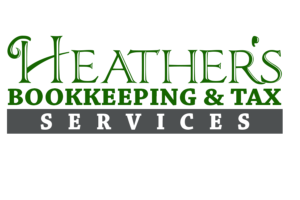CALIFORNIA BILL PROVIDING TAX BREAKS TO FIRE VICTIMS
BUTTE COUNTY FIRE RECOVERY TAX UPDATE
Bill to Provide Tax Relief for Fire Victims Passes First Committee
PG&E’s “Fire Victims Trust
The Internal Revenue Service today urged taxpayers to be on the lookout for a surge of calls and email phishing attempts about the Coronavirus, or COVID-19. These contacts can lead to tax-related fraud and identity theft.
“We urge people to take extra care during this period. The IRS isn’t going to call you asking to verify or provide your financial information so you can get an economic impact payment or your refund faster,” said IRS Commissioner Chuck Rettig. “That also applies to surprise emails that appear to be coming from the IRS. Remember, don’t open them or click on attachments or links. Go to IRS.gov for the most up-to-date information.”
Taxpayers should watch not only for emails but text messages, websites and social media attempts that request money or personal information.
“History has shown that criminals take every opportunity to perpetrate a fraud on unsuspecting victims, especially when a group of people is vulnerable or in a state of need,” said IRS Criminal Investigation Chief Don Fort. “While you are waiting to hear about your economic impact payment, criminals are working hard to trick you into getting their hands on it. The IRS Criminal Investigation Division is working hard to find these scammers and shut them down, but in the meantime, we ask people to remain vigilant.”
The IRS and its Criminal Investigation Division have seen a wave of new and evolving phishing schemes against taxpayers. In most cases, the IRS will deposit economic impact payments into the direct deposit account taxpayers previously provided on tax returns. Those taxpayers who have previously filed but not provided direct deposit information to the IRS will be able to provide their banking information online to a newly designed secure portal on IRS.gov in mid-April. If the IRS does not have a taxpayer’s direct deposit information, a check will be mailed to the address on file. Taxpayers should not provide their direct deposit or other banking information for others to input on their behalf into the secure portal.
The IRS also reminds retirees who don’t normally have a requirement to file a tax return that no action on their part is needed to receive their $1,200 economic impact payment. Seniors should be especially careful during this period. The IRS reminds retirees – including recipients of Forms SSA-1099 and RRB-1099 − that no one from the agency will be reaching out to them by phone, email, mail or in person asking for any kind of information to complete their economic impact payment, also sometimes referred to as rebates or stimulus payments. The IRS is sending these $1,200 payments automatically to retirees – no additional action or information is needed on their part to receive this.
Those who receive unsolicited emails, text messages or social media attempts to gather the information that appears to be from either the IRS or an organization closely linked to the IRS, such as the Electronic Federal Tax Payment System (EFTPS), should forward it to phishing@irs.gov.
Taxpayers are encouraged not to engage potential scammers online or on the phone. Learn more about reporting suspected scams by going to the Report Phishing and Online Scams page on IRS.gov.
As millions of Americans receive their $1,200 stimulus check today, a new proposal would give you $2,000 a month during the Coronavirus pandemic.
Here’s what you need to know.
Proposal: New Legislation
Two House Democrats want to enhance the $2.2 trillion stimulus package known as the CARES Act. Representatives Tim Ryan (D-OH) and Ro Khanna (D-CA) have introduced new congressional legislation — the Emergency Money for the People Act — to provide $2,000 per month to Americans who have been impacted by the COVID-19 pandemic. Under their proposed legislation, the congressmen would continue monthly cash payments to eligible Americans until employment returns to pre-COVID-19 levels. “A one-time, twelve hundred dollar check isn’t going to cut it,” Rep. Khanna said. “Americans need sustained cash infusions for the duration of this crisis in order to come out on the other side alive, healthy, and ready to get back to work.”
How It Would Work
The Emergency Money for the People Act would work like this:
Who’s Eligible
As with the $1,200 stimulus check (Economic Impact Payment), not every American would be eligible. Here’s who would get a monthly cash payment under this proposed legislation:
PROMOTED
For example, if you earn $100,000 of adjusted gross income per year and are a single tax filer, you would receive $2,000 a month. If you are married with no children and earn a combined $180,000 a year, you would receive $4,000 a month. If you are married with two children and earn a combined $200,000 a year, you would receive $5,000 a month. If you are married with five children and earn a combined $200,000 a year, you would receive a maximum of $5,500 a month because the $500 per dependent payment is only available for three children.
What if you don’t earn income or are unemployed?
If you had no earnings, were unemployed or are currently unemployed, you would be eligible.
What if you were not eligible for a stimulus check based on your 2018 or 2019 tax return, but you will be eligible in 2020?
You can be eligible and would need to submit at least two consecutive months of paychecks to verify your income.
Will most college students and adults with disabilities be excluded from these monthly payments?
No. Unlike the CARES Act, the Emergency Money for the People Act would make eligible college students and adults with disabilities who are still claimed as a dependent. The individual would receive the monthly payment and their parent or guardian would receive the dependent credit.
Treasury Secretary Steven Mnuchin announced that his department is pushing back the April 15 tax deadline to pay taxes owed for many individuals and businesses, giving them 90 extra days to send checks to the government.
Individuals can defer up to $1 million of tax liability and corporations get an extension on up to $10 million, Mnuchin said on 03/17/2020.
*File your 2019 taxes by April 15, 2020, and you will automatically not get charged interest or penalties.
 The coronavirus tax payment extension, which affects millions of taxpayers, is part of the Trump administration’s effort to curb the economic effects of the coronavirus pandemic. Mnuchin said the delay will free $300 billion of liquidity in the economy as individuals and businesses have more time to pay their taxes.
The coronavirus tax payment extension, which affects millions of taxpayers, is part of the Trump administration’s effort to curb the economic effects of the coronavirus pandemic. Mnuchin said the delay will free $300 billion of liquidity in the economy as individuals and businesses have more time to pay their taxes.
Delaying your tax payment due to the coronavirus requirements will give businesses and individuals nearly three more months to meet their IRS obligations, potentially lessening cash-flow issues that some businesses are facing as many people stay home and spend less money on dining out, entertainment and transportation.
Individuals and businesses will still have to file by April 15, unless they submit paperwork for an automatic six-month extension, Mnuchin told reporters.
Taxpayers who are Wealthy individuals — ranging from the upper-middle class to the top 1% — could benefit the most from this move because they are more likely to owe the government money and be able to wait until the filing deadline to submit their returns, said John Koskinen, a former IRS commissioner.
Taxpayers who are Lower-income workers — especially those who qualify for refundable tax breaks such as the child tax credit and the earned income tax credit, tend to file early because they get a refund check.
“The number of blue-collar workers, working-class people, I imagine, who are filing in the first two weeks of April is probably a very small percentage,” Koskinen said.
Many higher-income people, especially those who own a business or invest in multiple partnerships, apply for an automatic six-month tax extension to file because their returns are more complicated. In a typical year, they’d have to submit 90% of their tax liability on April 15 or face interest and penalties on the late payment.
The administration is also considering delaying the estimated quarterly tax payments that self-employed workers and businesses pay the IRS throughout the year, according to two people familiar with the matter. The first tax payment is typically due April 15, 2020.
For more in-depth information please visit: https://www.irs.gov/ or https://www.irs.gov/coronavirus
The IRS has established a special section focused on steps to help taxpayers, businesses and others affected by the coronavirus. This page will be updated as new information is available. For other information about the COVID-19 virus, people should visit the Centers for Disease Control and Prevention (CDC) (https://www.coronavirus.gov) for health information. Other information about actions being taken by the U.S. government is available at https://www.usa.gov/coronavirus and in Spanish at https://gobierno.usa.gov/coronavirus. The Department of Treasury also has information available at Coronavirus: Resources, Updates, and What You Should Know.

At Heathers Bookkeeping & Tax Services, we’ve been serving the accounting needs of Chico, CA and the surrounding areas for years. If you need help managing any aspect of your home or business’s finances, we want to hear from you.

